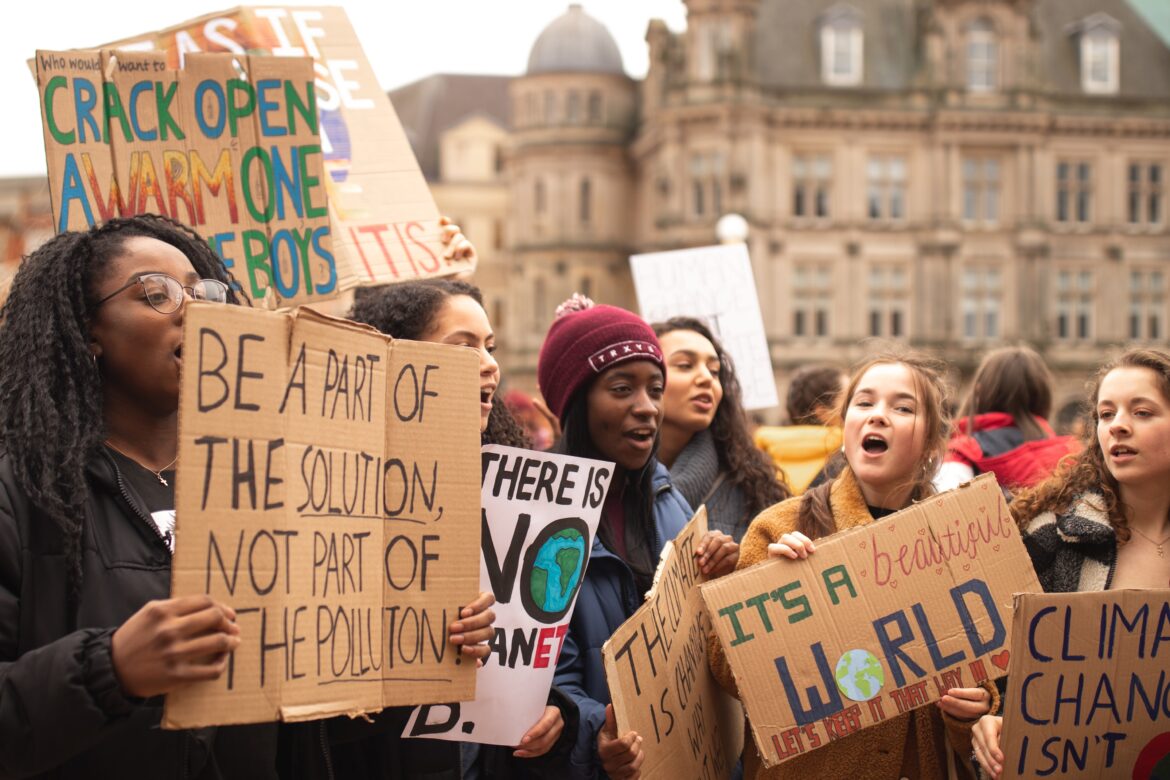Tomi Makanjuola, chef and author, spoke at COP26 on the critical need for a food revolution in order to tackle the current climate crisis, and how we need not give up our culture heritage in the process.
The following is a transcript of the talk Tomi gave on 7th November at the 26th UN Climate Change Conference in Glasgow.
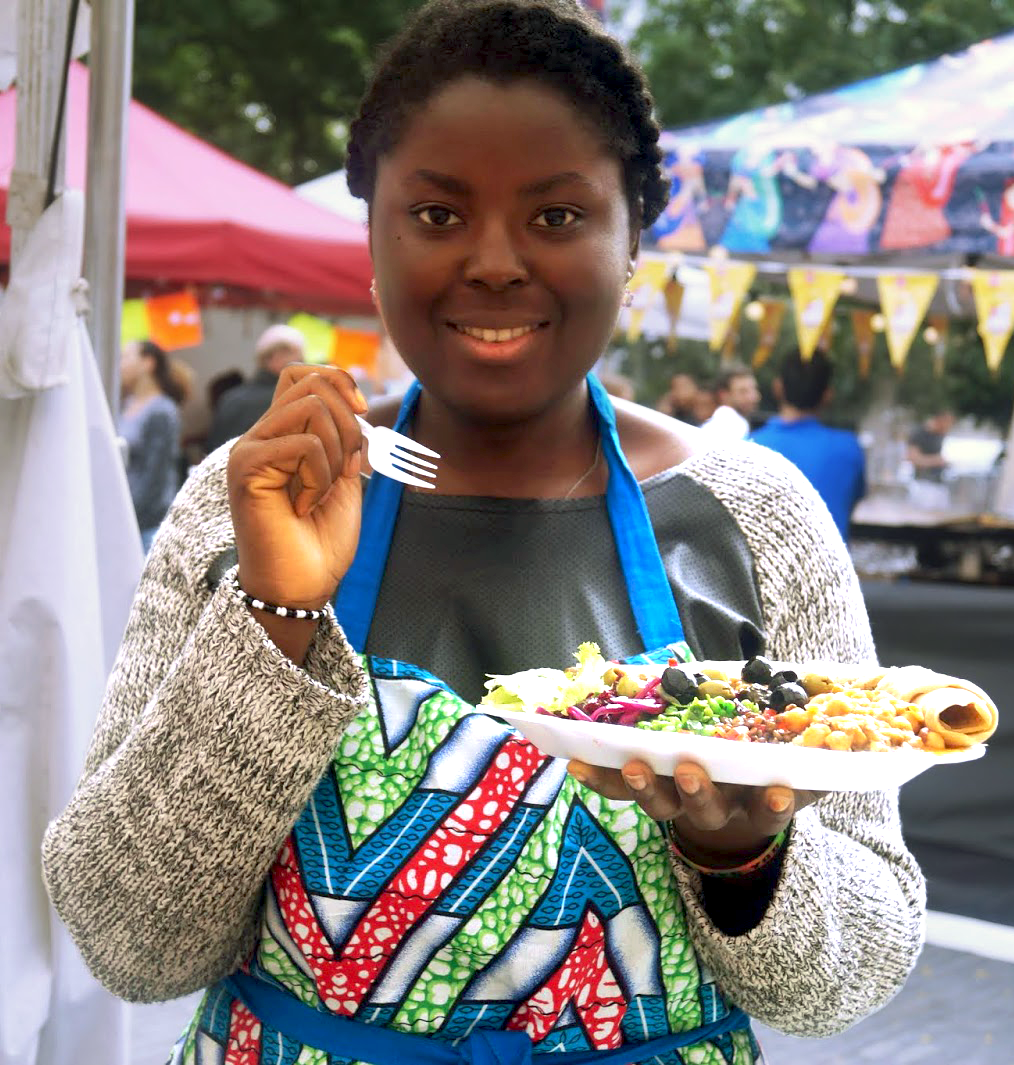
Tomi Makanjuola
My name is Tomi Makanjuola, and I’m the Founder of The Vegan Nigerian, a platform dedicated to making Nigerian cuisine and the vegan lifestyle accessible to members of my community and beyond, through workshops, online content, events and recipe books.
We can all agree, and it is abundantly clear, that our current food system is having a devastating impact on our planet and its inhabitants. A study by Oxford University in 2018 showed that animal agriculture is a leading cause of climate change and environmental degradation such as rising sea levels, floods, heatwaves and melting glaciers. And yet, this is a glaring area that the 26th UN Climate Conference seems to be ignoring.
The refusal by organisers to make plant-based meals the default offering at this year’s event – as proposed by several NGOs and political parties – is startling and disappointing, considering that such a move would have helped the summit to reduce its carbon footprint significantly. Instead, this year’s menu consists of almost 60 percent meat and dairy, with many dishes being labelled as high-carbon. This is simply shocking, reckless and illogical.
With research showing that a vegan, plant-based diet is the biggest action an individual can take to reduce their impact on the planet, the time is now to consider how we can all contribute to positive change. And for anyone who thinks that shifting to a plant-based lifestyle means giving up on your culture, I’d like to offer some encouragement and tips today to put your mind at ease.
Before I go into sharing some practical tips, let me briefly share my story and how I was not only able to transition to a vegan, plant-based lifestyle but also retain and honour my culture and heritage in the process.
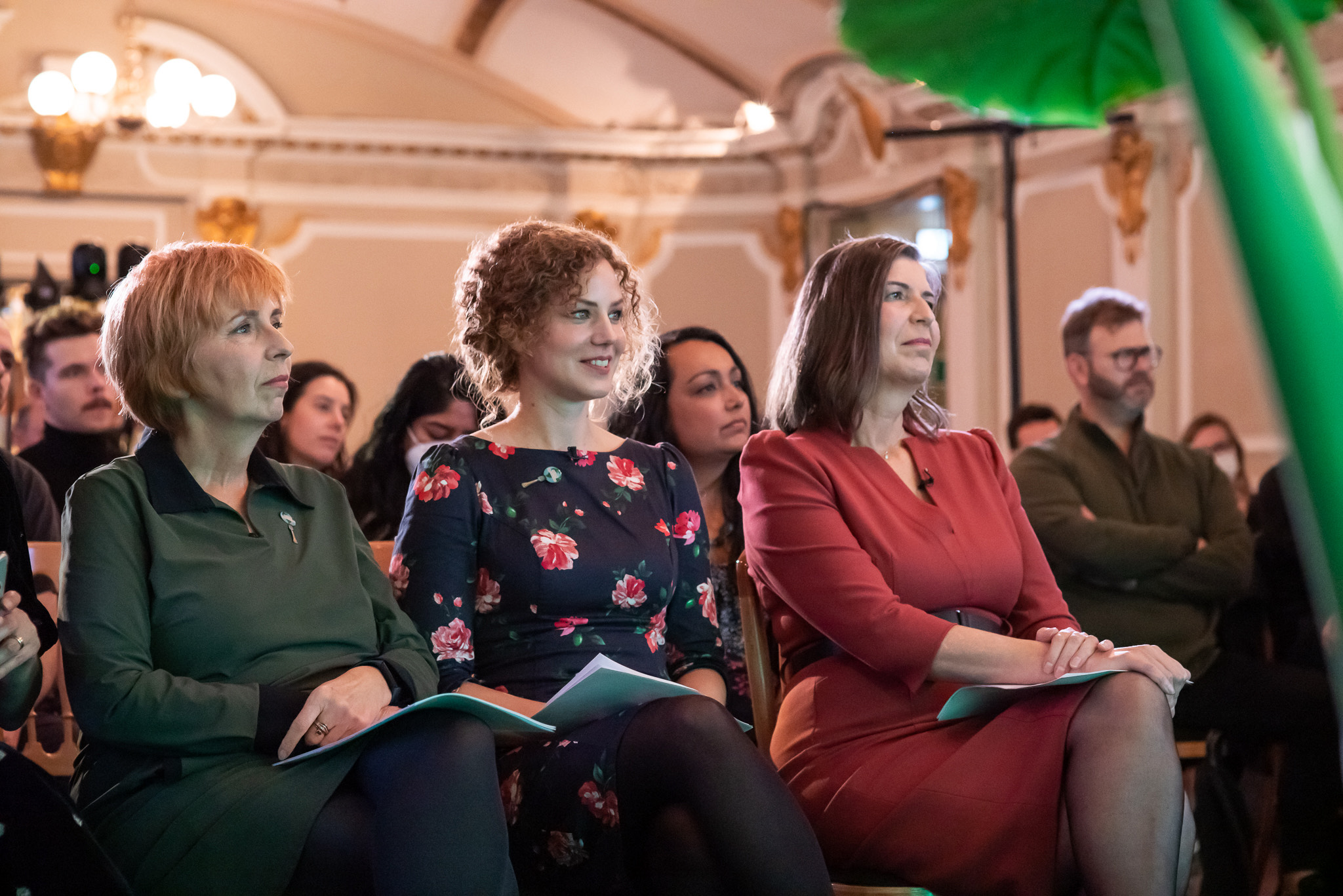
Delegates at COP26 listen to Tomi speak
I was born and raised in Lagos, Nigeria, and for as long as I can remember, food was a central part of my life. Home-cooked meals were the order of the day; mealtimes were moments for connecting and keeping the family bond strong and healthy. Special occasions were marked by a wide variety of meals. I grew up loving a lot of food, cooking a lot of food, and devouring a lot of food if I’m being honest. It’s no wonder that my work today is centred around it.
When I consider Nigerian cuisine, one thing I can confidently say is that we have an abundance of plant-friendly ingredients and meals. Like many other cultures around the world, the high consumption of meat and animal products was not always the norm. For reasons of affordability and availability, there was a time when meat was considered a special treat for many, eaten only at special events or on the rare occasion. Nowadays, it is considered a sign of affluence to be able to serve and eat vast quantities of meat, and consumption has truly sky-rocketed. As this increase in meat consumption is having an adverse effect on public health, so is it having an adverse effect on our planet.
Almost 9 years ago, this epiphany rocked my world. As I began to research the connection between our food system and its impact on the climate, there was no way I could ignore the facts at hand. What followed was a swift transition to veganism. Naturally, friends and family were curious about how this change would affect my lifestyle, particularly the food I would eat.
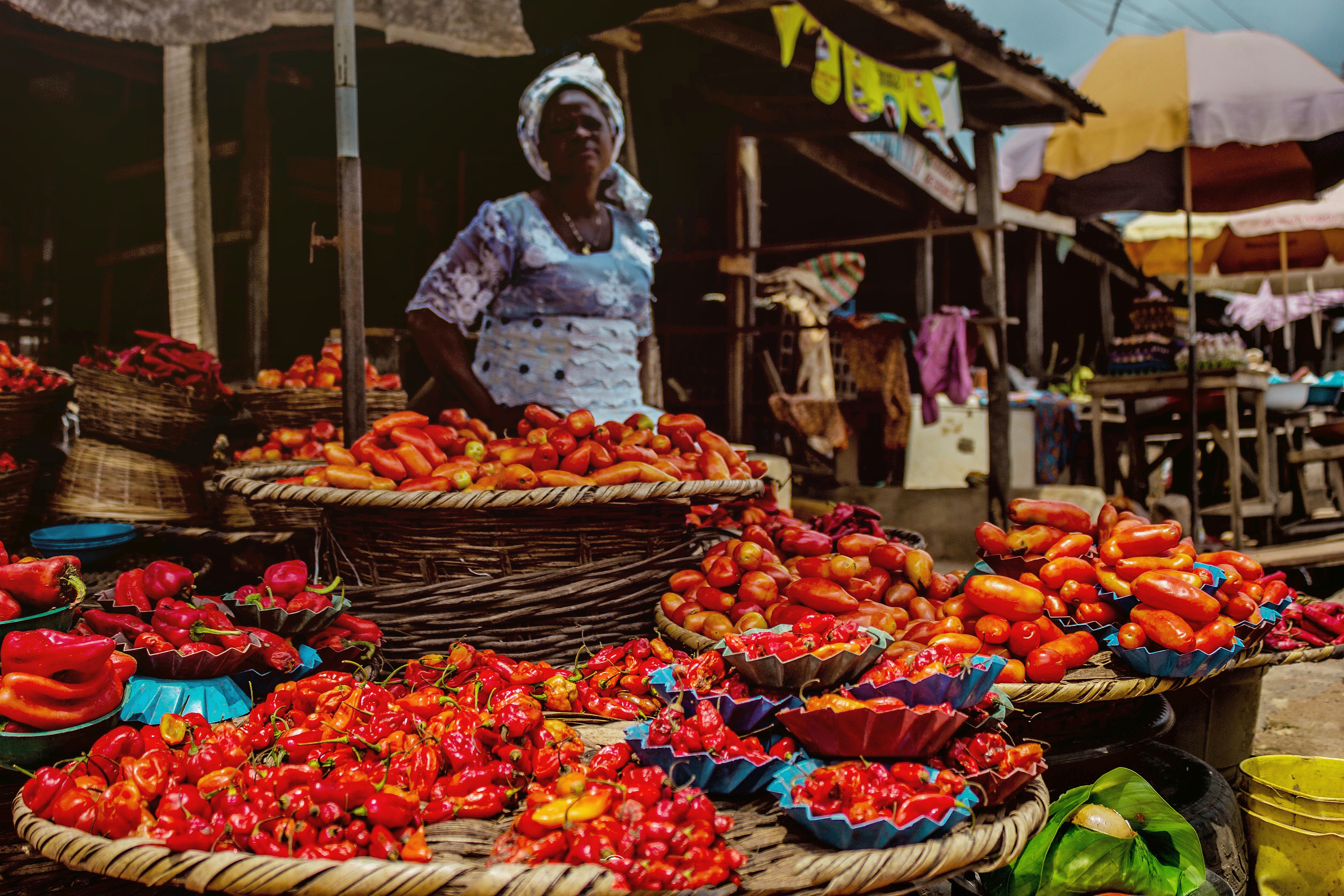
A woman sells peppers in a Nigerian market
We Nigerians are proud of our cuisine, which is bursting with fresh and intense flavours, spices and aromas. I was not about to give any of that up just because I had gone vegan. The misconception that I would be a plain salad-eating vegan was blown out of the water when I began to share my recipe adaptations with my community and the rest of the world through my blog The Vegan Nigerian. There, I would post vegan versions of traditional and contemporary Nigerian meals, showing how taste and texture can be retained and how a little bit of creativity can go a long way when cooking our food.
Although I have kept my focus on Nigerian food specifically, the principles that I have discovered over the years are applicable to any culture. Plant-based eating is not a fad, with many cultures around the world having eaten this way for centuries, and even for those countries where meat consumption is the norm, the narrative and mindset can absolutely change. All we have to do is observe the growing availability of plant-based meals from cuisines such as Mexican, Thai, Ethiopian, Ghanaian, Korean, Jamaican, Indian, and many many more. Vegans and plant-based pioneers from these cultures are showing us how to embrace this shift effortlessly and joyfully.
So for those who might still be hesitant about making the shift to vegan or plant-based eating, here are some tips and advice that I can share with you:
- Firstly, open your mind to the endless possibilities and options, and banish the thought that you are entering into restriction. There is a plant-based alternative for almost everything out there, from nut-based milks to yoghurt to meat substitutes. Those traditional dishes that call for meat to bulk out the meal can be made using ingredients like mushrooms, legumes, aubergine, tofu and other meat replacements.
- Secondly, rest assured that your food will not be bland. Consider that what really gives food its flavour are primarily plant-based herbs, spices, sauces and seasonings. Those big and bold flavours that you know and love can be achieved with plant-based meals.
- Then, if you are worried about breaking the bank, try to keep things simple. Many people think that going vegan requires expensive products and alternatives from fancy health shops and restaurants. When in fact, some of the cheapest and most nutritious foods are naturally plant-based. Embrace the core ingredients of your cuisine. For example, with Nigerian food, ingredients such as rice, beans, millet, plantain and spinach are staples which feature heavily in our meals and are cheaper than meat.
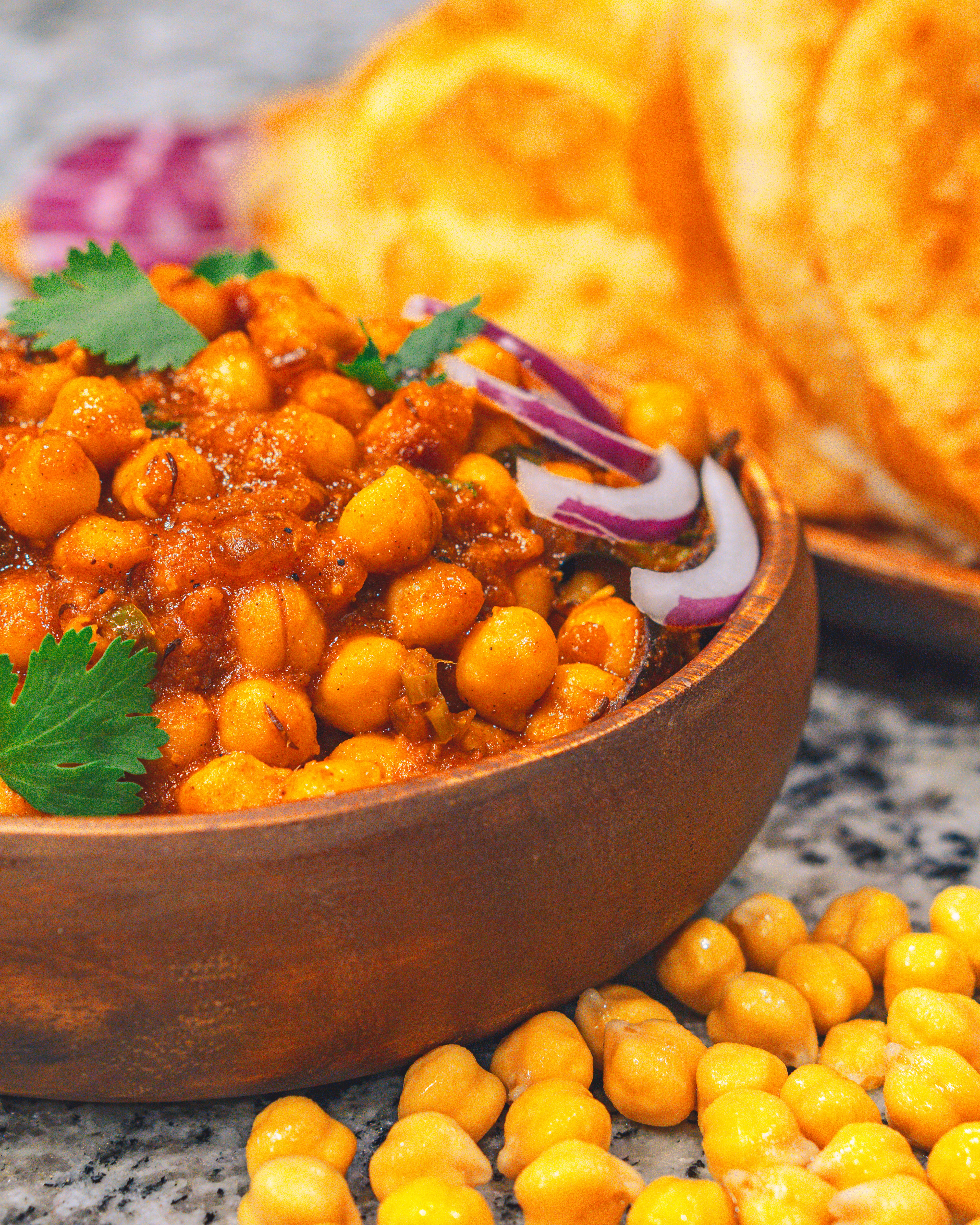 When it comes to family and friends, get them involved and make the subject light-hearted for them. I encountered some resistance and scepticism from some family members when I made the shift, particularly from older relatives. However, once they were able to taste the adapted traditional meals and see that it could still be delicious and enjoyable without the inclusion of animal products, their mindset slowly shifted. Now I have family members who wholeheartedly support this lifestyle and who themselves are cutting down or eliminating animal products from their diet. It’s little changes like these that will contribute to change on a wider scale.
When it comes to family and friends, get them involved and make the subject light-hearted for them. I encountered some resistance and scepticism from some family members when I made the shift, particularly from older relatives. However, once they were able to taste the adapted traditional meals and see that it could still be delicious and enjoyable without the inclusion of animal products, their mindset slowly shifted. Now I have family members who wholeheartedly support this lifestyle and who themselves are cutting down or eliminating animal products from their diet. It’s little changes like these that will contribute to change on a wider scale.
- Meal prep is a great way to save you time and keep you consistent. Like Nigerian cuisine, many food cultures around the world have incredible one-pot dishes such as stews and porridges that can be cooked in bulk and stored in the fridge or freezer. If you are able to, a bit of meal planning and meal prep means that you can enjoy more of the foods you enjoy without the stress of cooking it from scratch every single day. Stock up on fruits and plant-based snacks so that you always have something convenient to enjoy on-the-go. Some examples of vegan-friendly snacks that we have are things like plantain chips, roasted cashews, bean fritters and lots more. You may be pleasantly surprised to discover that a lot of traditional snacks in your culture happen to be plant-based.
- Now if you struggle with the idea of going it alone, join a community of like-minded people to help keep you accountable and motivated. Look out for bloggers and content creators who cook the types of meals you enjoy or grew up eating, and connect, either online or through in-person meet-up groups, with others who are on a similar journey to embracing the vegan or plant-based lifestyle. There is always strength in numbers and lots of advice and support that can come from such communities.
- Finally, when motivation wanes or you need a reminder of why making this shift is important, focus squarely on the benefits. A varied and eco-friendly plant-based diet is a delicious and nutritious way to stay healthy, save animals and contribute to a more sustainable planet.
As the climate crisis continues, we should all feel empowered to take a stand and embrace a new way of eating. And the best part is that we can continue to celebrate our various cultures and cuisines within this new paradigm. As myself and several other people demonstrate on a daily basis, the journey is very much possible, delicious and pleasurable. And finally, we can only hope that the next Climate Conference, which happens to attract attendees from different backgrounds and walks of life, will better reflect the importance of prioritising plant-based meals by insisting on a diverse and flavourful plant-based menu.
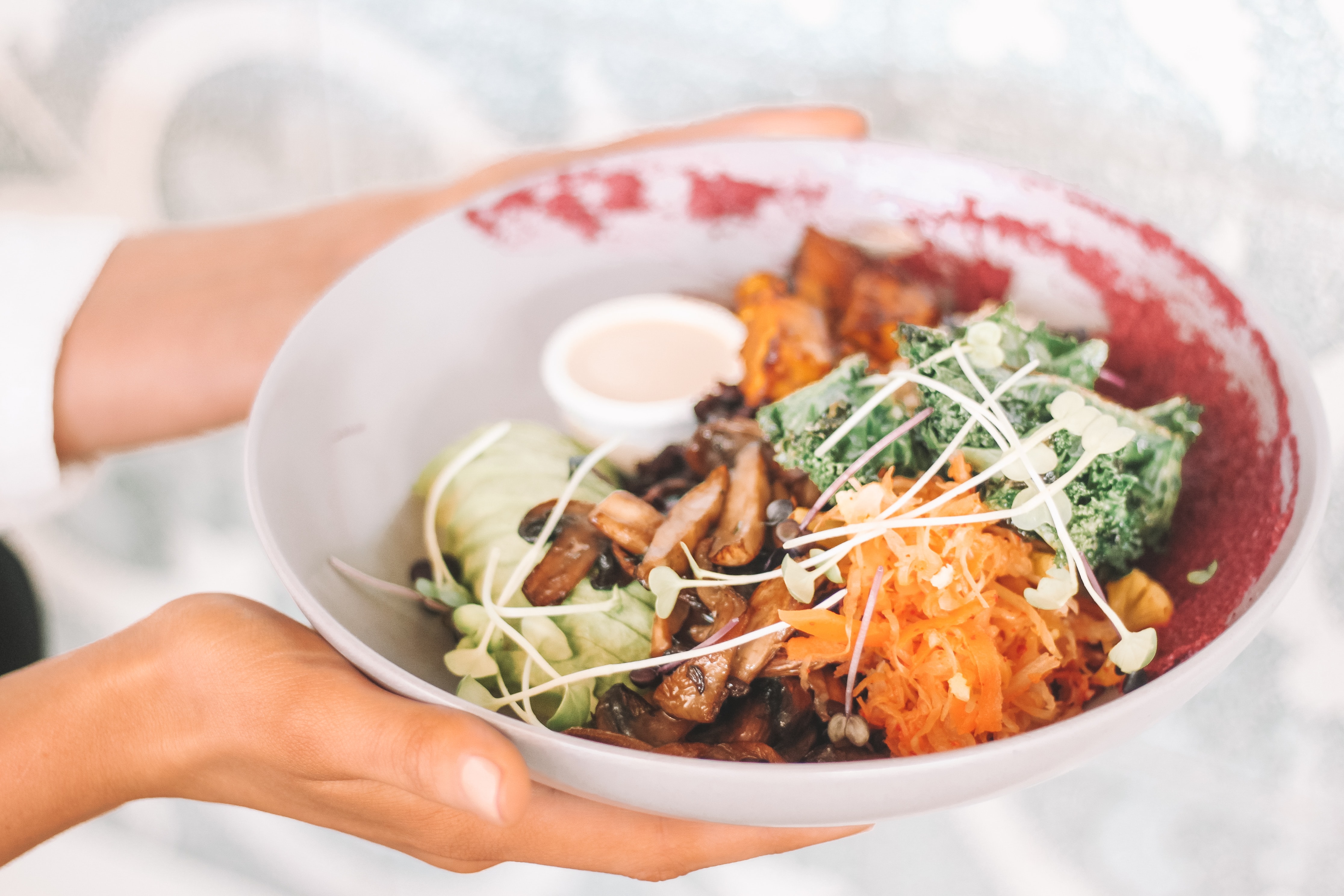 Tomi Makanjuola is a Nigerian born chef, food blogger and author who lives and worships in London. For more information about her work:
Tomi Makanjuola is a Nigerian born chef, food blogger and author who lives and worships in London. For more information about her work:
Website: vegannigerian.com
Instagram: instagram.com/vegannigerian
Facebook: facebook.com/VeganNigerian
Twitter: twitter.com/VeganNigerian


